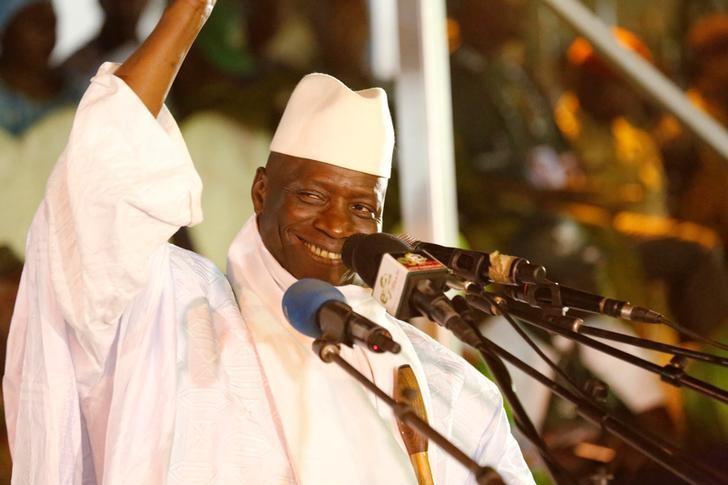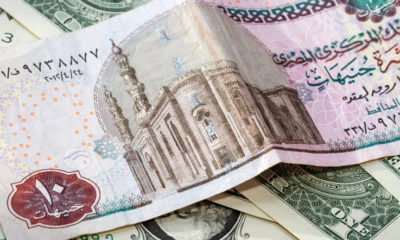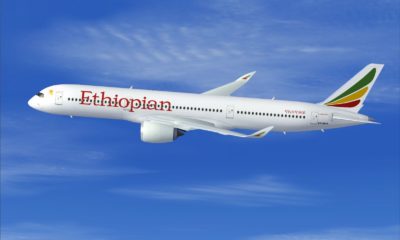Government
Yahya Jammeh Must Go!
Published
8 years agoon

- Yahya Jammeh Must Go!
It will be recalled that an election took place in The Gambia on December 1, 2016, in which the opposition led by Adama Barrow won, thereby defeating the incumbent President Yahya Jammeh. The incumbent accepted the outcome initially, but later changed his mind after one week, went to the Constitutional Court (as of right) to challenge the result of the election and has vowed not to vacate office on January 19, 2017, the handover date.
The Economic Community of West African States sensing the crisis that may likely follow, advised and persuaded Jammeh to step down on the handover date to which he has refused to yield, insisting that he would continue in office. The ECOWAS leaders then threatened to forcefully make Jammeh hand over. President Jammeh reacted by saying that the ECOWAS summit decision was “totally illegal” as it violated the principle of non-interference in the internal affairs of member states. He declared:
“It is in effect a declaration of war and an insult to our Constitution. It is therefore absolutely unacceptable. Let me make it very clear that we are ready to defend the country against any aggression.”
President Jammeh is insisting that there were errors and irregularities in the polls necessitating his going to court to challenge the result. He has ruled this tiny African State for 22 years, and he is still not done. The problem of African states has been that of sit-tight leaders who do not want to vacate office and who see the “throne” as a “birth right”. The most violent and devastating conflicts on the African continent have notably been intra-state in nature: conflict with considerable humanitarian consequences for regional and international organisations.
The end of the Second World War precipitated the creation of the majority of independent states in Africa. Most of the colonial powers, including Britain and France, were weakened and devastated by the war and relinquished the majority of their colonies in Africa. In addition, colonialism became internationally regarded as inappropriate in the post Second World War era.
Africa is made of diverse ethnic, religious and historical backgrounds and colonial territorial boundaries which are obstacles that divide Africa. In addition, 54 independent states that make up Africa are diverse and vast with important ecological, demographic, racial, socio-cultural, ethno-religious and political differences. There are for instance, wide racial and cultural differences between the Maghreb North and sub-Saharan Africa.
There are also striking demographical differences as reflected in the population and sizes of states such as Sudan, Democratic Republic of Congo and Nigeria on the one hand, and other micro-states like The Gambia, Lesotho and Swaziland on the other. There is also a vast disparity in resource endowment as illustrated by the mineral-rich states of Nigeria, Sierra Leone, Libya and South Africa as opposed to the resource-poor countries on the continent. Furthermore, there is a huge gulf between the stable and relative prosperous states like Botswana, Cape Verde, Mauritius and Tunisia and economically weak and war-torn countries such as Sierra Leone, Angola, DRC, Liberia, Somalia and Sudan. These differences are in themselves major obstacles to unity in Africa.
Even a sub-regional organisation, like ECOWAS is made up of diverse colonial heritage, like Anglophone, Francophone and Lusophone divides. The West Africa sub-region was portrayed by Robert Kaplan as having the potential to become the “real strategic damage” threatening international peace and security.
The ECOWAS Treaty to a very large extent is not as potent as the African Union Constitutive Act. By this, President Jammeh was correct that the decision to intervene in The Gambia by ECOWAS violates the principle of non-interference in the internal affairs of a member state. By this, it will be better and neater for this likely crisis to be handled by the AU.
With the failure of the erstwhile Organisation of African Unity Charter to meet the yearnings of Africans, African leaders have to form a new Union. In 1999, African leaders met in Sirte, Libya, to review the OAU Charter. Thereafter, it was agreed that there was a need to draft a new Constitution. The Constitutive Act of the AU was subsequently signed in Lome, Togo on July 11, 2000.The official inauguration of the AU took place in July, 2002 in Durban, South Africa and represented the next level in the evolution of the ideal of Pan-Africanism.
The Constitutive Act of the AU is based on three fundamental normative principles. First, the intention to develop closer collaboration with the many and diverse sub-regional economic communities and security defence systems in the pursuit of continental development, peace and security objectives. Second, to develop a continental collective security framework based on mutual interdependence and ‘dependable expectations’ of peaceful interstate relations. Third, to develop and strengthen the position of the continent in international economic and commercial diplomacy, in particular, to strategically benefit from the advantages of neo-liberal globalisation.
Article 4(h) read in conjunction with four 4(m) of the AU Constitutive Act is a paradigm shift in the international relations and political diplomacy of African states. By Article 4(h) and 4(m), the AU and the ‘right’ to intervene, without consent in a member state in order to ‘restore peace and stability, to ‘prevent war crimes, genocide and crimes against humanity’ and to respond to situations that constitute ‘a serious threat to legitimate order; is a novel enactment.It also went on to state that the Union shall function and respond to threat to democratic principle, human rights, the rule of law and good governance. The genie that has been responsible for the inactivity of the OAU in responding to conflicts in Africa has finally been exorcised. Political sovereignty is no longer sacrosanct, and it is now replaced by the right to intervene in member states in situations of state collapse, war crimes, genocide and for human protection purposes.
Internal armed conflicts all over the world and especially in Africa are mostly accomplished by forceful displacement of civilians. This appears like a military and political objective of such wars. Looting, arson and willful destruction of civilian livelihood had become both a means of and an end in such conflicts. In the same vein, rape, sexual violence, genital mutilation and mass murder had become prime war tactics employed with the aim of annihilating group or groups in conflict. From Liberia to Sierra Leone; from Darfur to Congo, Africa has been treated to an orgy of violence and willful destruction of human life and property without restriction. The African Union is conscious of the problems created by the sometimes ‘primitive’ adherence and loyalty to the respect for political sovereignty; hence the norm of humanitarian intervention is enshrined in the Act of the Union. But the real test for the African Union is the translation of this normative principle into action.
The endorsement raises several critical issues. First, the African states, for a variety of reasons, are not and find it difficult to agree on‘what is’ or ‘what constitutes’ ‘humanitarian’ and ‘humanitarian intervention’. Second, the majority of African states, given their own poor record of human rights protection, are wary about the potential use or misuse of a continental right to intervention by dominant states or sub-regional hegemons in pursuit of their own strategic self-interests. Third, the African Union Constitutive Act and the endorsement of a right to humanitarian intervention makes a major contribution to contemporary international relations in that it is fundamentally different from the UN Charter. The UN Charter does not, according to some scholars and diplomats endorse a right to humanitarian intervention, though the weight of customary international laws illustrates that the UN has condoned unilateral humanitarian interventions.
Africa is a continent bordered by conflicts. In the 1990’s, it accounted for more than forty percent of the conflicts around the world, the most on any continent. From year 2000 to 2014, 22 peacekeeping operations by the international community have taken place throughout the world. Out of these, 13 have taken place on Africa soil.
Some African leaders have stayed in power for more than 15 years, thereby becoming dictators oppressing their own peoples leading to civil wars with the resultant effect of peacekeeping. Some examples are, President Teodor Obiang Nguema Mbasago of Equatorial Guinea since 1979, Jose Santos of Angola, since 1979, Robert Mugabe of Zimbabwe since 1980, Yoweri Museveni of Uganda since 1986. Others are Omar Bashir of Sudan since 1989, Pierre Nkurunziza of Burundi since 2005 and Idrissu Deby of Chad since 1990, whose fifth term in office is just began, just to mention a few. Much of African contemporary conflict is intrastate, exacerbated by ethnic and religious tension with generic economic and political underpinning, all as a result of bad governance. The growing interconnecting of the global arena also means that conflicts can have international as well domestic dimensions.
Civil unrest within sovereign states has had dire consequences to African region since decolonisation. The laudable response of the African States, particularly in recent decades, has been a series of interventions and peacekeeping operations through regional organization that are now formalized by treaty. At least in part, these actions fall under Chapter VIII of the United Nations Charter, which is dedicated to regional organization to engage in peacekeeping and enforcement, but the text of this provision places these operation under the Security Council’s Authority.
Unlike the OAU Charter, the AU Constitutive Act allows for interference in the internal affairs of member States in case of unconstitutional changes of government for regional stability. Furthermore, the Act also provides for the participation of African Civil Society actors in the activities of the organization, establishes a Pan-African Parliament, and provides for the Economic and Cultural Commission. One year after the establishment of the new Union, African Heads of State and Government adopted a Protocol relating to the establishment of the Peace and Security Council.
Therefore, Article (4h) and 4(m) are potent weapons that the AU can use to intervene in Gambia. Furthermore, the Article was amended in 2003 by the Protocol on Amendment to the Act to include other serious condition under which the AU could intervene particularly those that included threats to legitimate order (as is been envisaged in Gambia now). In such cases, according to the amendment, the AU was permitted to restore security to any AU member state based on the recommendation of the Peace and Security Council.
With the provisions outlined in various sections of Article 4, Africa has moved away from unqualified respect for state sovereignty to an approach where the duty to protect populations and the right to intervene shapes Africa’s security management agenda. Ethiopian scholar, Deresso, sheds light on the importance of Article 4 with respect to post-cold War African Security needs which he asserts that the new security architecture with Article 4 (h) as its core, is not just a mere commitment to the promotion of peace and security, but it shows Africa’s determination to avoid a repeat of the “Rwanda experience”. He continued:
The article in question not only creates the legal foundation and justification for armed intervention in member states violent conflict, but it also imposes an obligation on Africa’s foremost institution to intervene in such cases in order to prevent the occurrence or stop the perpetration of atrocious intervention crime in Africa.
Since its inauguration, the PSC has made crucial political decision in response to peace and security challenges in Africa, with the mixed result of both short comings and achievements. It should be understood that most of these responses according to Oluwadare, a renowned author, have been in the areas of condemning violence and the use of political and economic sanction against unconstitutional changes of government, particularly the coup d’état in Central African Republic (2003), Guinea Bissau (2003 and 2012), Sao Tome and Principle (2003), Togo (2005), Mouaritania (2005 and 2008).Othersare Guinea (2008) Madagascar (2009) and Niger (2010), the rest are the post-election crisis in Ivory Coast (2010-2011) in which the then President, Laurent Gbogbo is now standing trial before the International Criminal Court and the post–election violence in Kenya (2013). The Council has also been able to authorise peace operations in Burundi, Somalia, Sudan and the Comoros.
Already, the US government sensing the crisis that may follow if Jammeh refuses to hand over, has warned her citizens not to travel to The Gambia for any reason at all. Very soon, other countries in Europe are likely to follow suit because the crisis that may follow may lead to loss of lives and properties, remembering the past experiences in Liberia, Sierra Leone, Ivory Coast and Kenya.
At present, Nigeria cannot and should not spear heard any intervention in The Gambia. With the economy in recession and the Boko Haram insurgency in the North-East, this is not the best of time for Nigeria to lead any intervention in The Gambia. Consequences of any civil war are best imagined than experienced. Women, children and the aged one are always the most affected in any crisis situation. The past experiences in Liberia, Sierra Leone, Darfur (Sudan) to mention a few attest to this. It is quite better and safer for the AU to step in now so as to not create humanitarian crisis of in term of refugees and the Internally Displaced Persons. If President Jammeh refuses to be persuaded, he should be forced out.
Jammeh should be persuaded to emulate the hitch free handover of power to the opposition in Nigeria in 2015, and the one that has just taken place in Ghana. He must not be allowed to follow the footsteps of Joseph Kabila of Democratic Republic of Congo DRC and other dictators in the world.
ADEYEYE ESQ.,
A lecturer at the College of Law, Kwara State University, Malete, is an expert on Conflict Prevention, Management and Peacekeeping in Africa. joel.adeyeye@kwasu.edu.ng
Is the CEO and Founder of Investors King Limited. He is a seasoned foreign exchange research analyst and a published author on Yahoo Finance, Business Insider, Nasdaq, Entrepreneur.com, Investorplace, and other prominent platforms. With over two decades of experience in global financial markets, Olukoya is well-recognized in the industry.

You may like
-
Ghana Refuses Gold Fields’ Lease Renewal for Damang Mine, Takes Over Operations
-
Africa’s Creator Economy Projected to Hit $17.84 Billion by 2030
-
IATA Reports Continued Recovery for African Airlines With Strong February Growth
-
Egypt’s Inflation Ticks Up But Rate Cut Still in View Amid IMF Support
-
World Bank Demands Fiscal Discipline as Condition for Further Kenyan Funding
-
Ethiopian Airlines Prepares to Launch Passenger Flight Service to Sharjah, the UAE















